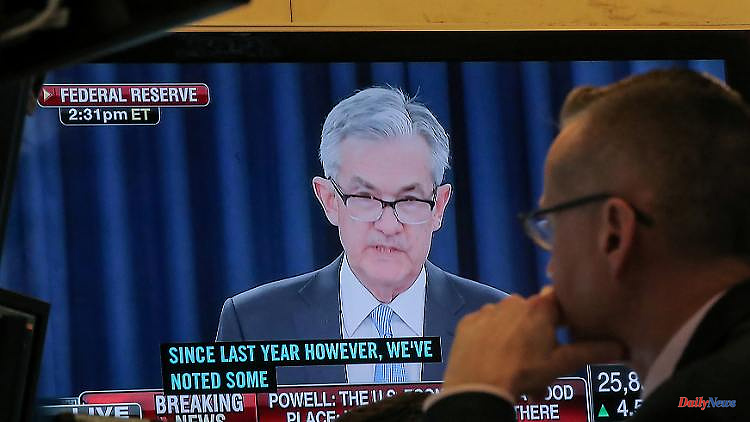The US is being hit by severe inflation. The price pressure is so high that it could force the Federal Reserve to raise interest rates surprisingly high.
Jerome Powell doesn't like surprises at all. The head of the US Federal Reserve is preparing the financial markets for when they can expect an interest rate change and how much. You then have enough time to adapt.
Therefore, it was considered a foregone conclusion that the FED will raise interest rates by 0.5 percentage points this Wednesday. Because that was what the central bankers had signaled unequivocally. But now it looks like interest rates could rise by as much as 0.75 percent. For context: the Fed last took such a big step in 1994.
But the situation is serious. The US Department of Labor released disappointing inflation data on Friday. Contrary to general expectations - and the hopes of the FED - the general price increase has picked up speed again. At 8.6 percent, it has reached its highest level since December 1981.
This has increased the pressure on the Fed enormously. At its last meeting in May, it had already raised interest rates by 0.5 percent to a range between 0.75 and 1 percent. That was the biggest step in 22 years.
During the press conference, Powell said the central bank wanted to avoid uncertainty about rate hikes. At the same time, he did not rule out surprises. "We will need to be flexible with the data coming in and the evolving outlook," he said. In plain language, this means that if the inflationary pressure does not subside, the FED will act decisively.
And that's exactly where the FED could be now.
Not only has inflation risen, but Americans' fears of inflation are also growing. On Friday, the University of Michigan released its widely publicized Index of Long-Term Consumer Inflation Expectations. It has climbed to its highest level since 2008. And on Monday, the Federal Reserve Board of New York reported that its survey showed consumers' near-term inflation expectations were rising.
Against this background, the FED wants to prevent inflation from taking hold. Since Powell and his Fed colleagues have not been able to comment publicly since June 4 due to the internal rule known as a "blackout", they may have chosen a different way to prepare the financial markets for the possibility of even higher interest rates: The financial issues in The usually very well-informed "Wall Street Journal" reported that the Fed was considering a 0.75 percent rate hike.
This does not mean that interest rates will actually rise at this rate. But the financial markets are already pricing in the possibility. This can be seen, for example, in the stock market. Prices are falling there because some investors are expecting higher interest rates. As interest rates rise, equities become less attractive than other forms of investment.
Leading Wall Street banks are now expecting a large rate hike of 75 basis points - including Goldman Sachs, JP Morgan Chase, Barclays and Jefferies. But that doesn't mean it will actually happen. The decision will be made behind closed doors at today's central bank meeting. It should be an intense discussion.












